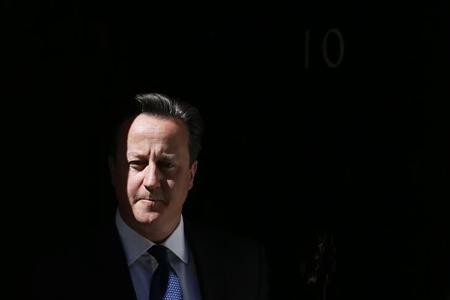
Even when the much-sensationalised hacking of American phone records and internet data by the National Security Agency (NSA) had still not waned in the spiralling wave of discussions related to boundaries in intelligence surveillance, British newspaper The Guardian has put the UK government into trouble saying they were the culprit of even higher-profile hackings into delegates' phones at the G20 summit in 2009.
In what appears to be an event that is likely to cause a major embarrassment and setback for the UK government hosting the G8 summit on Monday in Northern Ireland, it was revealed that computers and phones at the G20 summit meetings in London were monitored and intercepted. Some dignitaries were "tricked into" using internet cafes that were set up by Government Communications Headquarters (GCHQ) to read their emails, the newspaper reported citing documents retrieved from Edward Snowden who ascended to fame in recent days after he revealed the secret US surveillance program called PRISM.
While any government would argue that the "classified" but legal activities of their intelligence services were aimed at providing security to their country, there appears to be no set boundaries that limit the scale of the activity and in many cases, like the newly revealed UK spying of dignitaries, the undercover work seems to be arbitrary and ill-founded.
In another article published by Guardian Sunday, it was revealed that those powers which allow Britain's intelligence agencies to spy on individuals including dignitaries were enshrined in the 1994 Intelligence Services Act (ISA). The act was formulated with a wide agenda of allowing officials involved in intelligence services to undertake all kinds of activity with ministerial authority. But with advancement in technology and ground-breaking ability to spy on digital communications, there seems to be no way of exercising this power sparingly and with well-substantiated justification, such as security threat.
That issue aside, the question on how Britain will defend its action of spying country dignitaries four years ago will loom large on Monday's G8 summit. David Cameron and Barack Obama will be confronted with impounding and quizzical eyes from different dignitaries in the meeting that will include representatives from Russia. Revelations were also made that NSA's intercept specialists targeted phone calls made by Russian President Dmitry Medvedev and other Russian delegates from London to Moscow during the meeting four years ago. The question that is likely to be asked also is whether or not similar activities of eavesdropping and monitoring emails and phone calls were planned for this week's G8 summit too.
While Syria was known to be the main issue that would be discussed in this week's meeting, Obama quickly announced the supply of aids to the battered rebel groups which many analysts feel would serve as a diplomatic cover-up to address the G8. The revelation of Britain's spying in the 2009 G20 comes on the very brink of Monday's summit leaving Cameron with limited preparation time to confront impending questions. With new revelations on surveillance and spying emerging with every passing day, the UK and US are left with the grand task of justifying the trends that seem to signify arbitrary exercise of powers aimed mostly at political gains.
Follow the writer in Twitter: https://twitter.com/sahaja_gopi
















